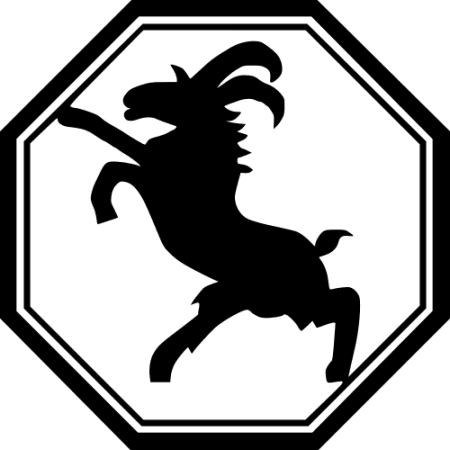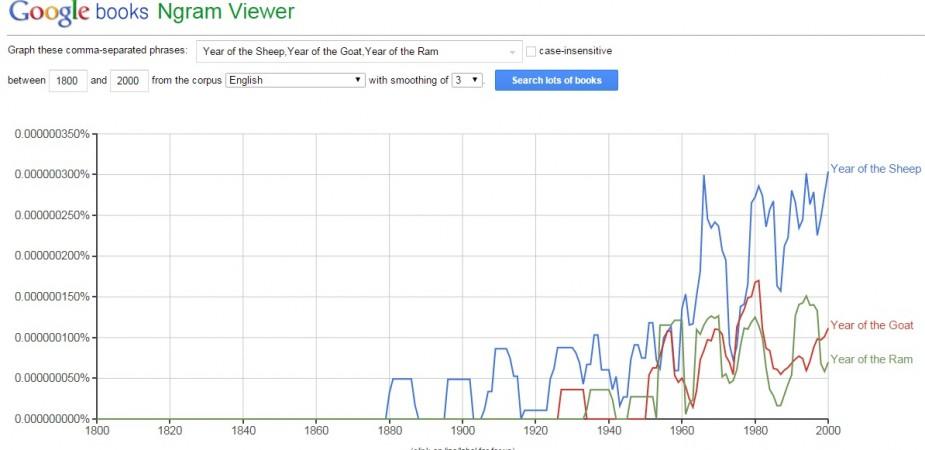
As Chinese New Year 2015 approaches, confusion is growing on whether it is the year of the sheep, goat, ram or 'Year of the horned animal' and what exact difference do these classifications make.
In Chinese, the upcoming lunar year is directly translated as 'Year of the Yang' but the meaning of the word 'Yang' is often lost in translation and there seems to be no solution on how to transcribe it in English as experts dealing with Chinese language say.
"In Chinese, 'yang' is a genetic word to mean sheep/goat/ram, so yes, there's always the ambiguity when comes to translating the word," Professor Lingchei Letty Chen, an expert in Modern Chinese language and literature from the Washington University in St. Louis, Missourti, US, told IBTimes India via e-mail.
"The way Chinese language define which particular type of 'yang' is referred is by putting a qualifier word in from of 'yang, i.e. 'shang (mountain) yang' means 'goat', 'mian (gentle, meek) yang' means 'sheep', and 'gong (male) yang' means ram."
But what do we call the upcoming year of the lunar calendar. Is it the year of the sheep, goat or the ram? According to William H. Baxter, Professor of Chinese Linguistics in the University of Michigan, the answer is not easy.
"The basic meaning of yáng 羊, by itself, is 'sheep'. There is this complication, though, that Chinese uses the same form, with a modifier, for 'goat', and also for 'ram', 'ewe', 'lamb', etc," he explained.
"For example, the Chinese for 'goat' is shānyáng 山羊 (where shān 山 means 'mountain' or 'hill'). So there is no 'exact' animal associated with the Chinese word yáng 羊. There is no 'exact' animal corresponding to English 'sheep', either, though, since the term is used for different species of the genus Ovis."
"In Chinese, 'ram', 'ewe', and 'lamb' are gōngyáng 公羊 ('male' or 'father' sheep), mǔyáng 母羊 ('mother' sheep), and xiǎoyáng 小羊 ('small' sheep) respectively," he added.
"The English vocabulary for sheep and goats is quite elaborate, probably reflecting the fact that the British have a long tradition of raising these animals," he said adding that Chinese pictures illustrating the Year of the Sheep include a goat as well as a sheep since goat is also a kind of Yang.
"Since there is no exact equivalent in English for yángnián 羊年 (Year of the Yáng), I suppose there will always be an ambiguity. This is not unusual when translating from one language to another."
A Google search for "year of the sheep" brings in about 2,470,000 search results, while "year of the goat" reverts about 2,350,000 results, and "year of the ram" bring in about 1,140,000 results.
Professor Baxter also played around with Google ngrams, which uses as sample the texts scanned by Google Books. When we look for "Year of the Sheep", "Year of the Goat", and "Year of the Ram", we get a graph (below), which seems to indicate that "Year of the Sheep" wins out. That means, in terms of the number of times it has been mentioned in books since 1880 till date, the year of the 'Sheep' seems to be correct expression or is more widely used.

"So on the internet, it appears that "year of the sheep" is a slight favorite," Baxter said adding that "Year of the Sheep" seems most common in general.








